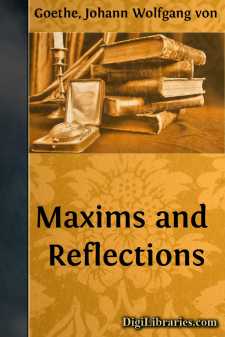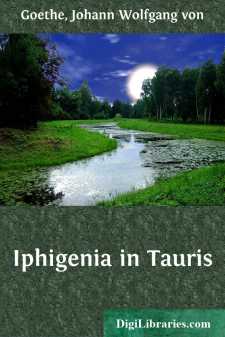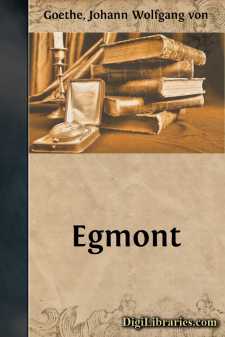Categories
- Antiques & Collectibles 13
- Architecture 36
- Art 48
- Bibles 22
- Biography & Autobiography 813
- Body, Mind & Spirit 142
- Business & Economics 28
- Children's Books 17
- Children's Fiction 14
- Computers 4
- Cooking 94
- Crafts & Hobbies 4
- Drama 346
- Education 46
- Family & Relationships 57
- Fiction 11829
- Games 19
- Gardening 17
- Health & Fitness 34
- History 1377
- House & Home 1
- Humor 147
- Juvenile Fiction 1873
- Juvenile Nonfiction 202
- Language Arts & Disciplines 88
- Law 16
- Literary Collections 686
- Literary Criticism 179
- Mathematics 13
- Medical 41
- Music 40
- Nature 179
- Non-Classifiable 1768
- Performing Arts 7
- Periodicals 1453
- Philosophy 64
- Photography 2
- Poetry 896
- Political Science 203
- Psychology 42
- Reference 154
- Religion 513
- Science 126
- Self-Help 84
- Social Science 81
- Sports & Recreation 34
- Study Aids 3
- Technology & Engineering 59
- Transportation 23
- Travel 463
- True Crime 29
Maxims and Reflections
Description:
Excerpt
The translation of Goethe's "Prose Maxims" now offered to the public is the first attempt that has yet been made to present the greater part of these incomparable sayings in English. In the complete collection they are over a thousand in number, and not more perhaps than a hundred and fifty have already found their way into our language, whether as contributions to magazines here and in America, or in volumes of miscellaneous extract from Goethe's writings. Some are at times quoted as though they were common literary property. To say that they are important as a whole would be a feeble tribute to a work eloquent for itself, and beyond the need of praise; but so deep is the wisdom of these maxims, so wide their reach, so compact a product are they of Goethe's wonderful genius, that it is something of a reproach to literature to find the most of them left untranslated for the sixty years they have been before the world. From one point of view, the neglect they have suffered is in no way surprising: they are too high and severe to be popular so soon; and when they meet with a wide acceptance as with other great works, much of it will rest upon authority. But even for the deeper side of his writings, Goethe has not been denied a fair measure of popular success. No other author of the last two centuries holds so high a place, or, as an inevitable consequence, has been attacked by so large an army of editors and commentators; and it might well be supposed by now that no corner of his work, and least of all one of the best, had remained almost unnoticed, and to the majority unknown. Many of these maxims were early translated into French, but with little success; and even in Germany it was only so late as the year 1870 that they appeared in a separate form, with the addition of some sort of critical comment and a brief explanation of their origin and history.
But although to what is called the reading public these maxims are as yet, no less in fact than in metaphor, a closed book, its pages have long been a source of profit and delight to some of those who are best able to estimate their value. What that value is, I shall presently endeavour to explain. No one, I think, can perceive their worth without also discerning how nearly they touch the needs of our own day, and how greatly they may help us in facing certain problems of life and conduct, some of them, in truth, as old as the world itself, which appear to us now with peculiar force and subtlety.
It was in this respect that they were warmly recommended to me some years ago by my excellent friend, Professor Harnack, the historian of Dogma, a writer with a fine and prudent enthusiasm for all ennobling literature. It is to him that I owe the resolve to perform for the maxims, as far as I could, the office of translator; a humble office, but not, as I have good reason to know, without its difficulty, or, as I venture to hope, without its use. Of many of them the language is hardly lucid even to a German, and I have gratefully to acknowledge the assistance I have received from the privilege of discussing them with so distinguished a man of letters.
To Professor Huxley I am also deeply indebted. I owe him much for friendly encouragement, and still more for help of an altogether invaluable kind; for in its measure of knowledge and skill, it is admittedly beyond the power of any other living Englishman. The maxims deal, not alone with Life and Character, where most of them are admirable, but also with certain aspects of Science and Art; and these are matters in which I could exercise no judgment myself, although I understood that, while many of the maxims on Science and Art were attractive, they were not all of great merit. Professor Huxley not only did me the honour to select the maxims on Science, but he was further good enough to assist me with them, and to read and approve the translation as it now stands. The weight and the interest of his authority will thus give additional value to that section of the book, and also do much to overcome the objections that exist to making a selection at all.
For a selection is a necessary evil. It is an evil because, even if it leaves the best, it takes away something of a man's work; if it shows us the heights he has reached, it obliterates the steps of his ascent; it endangers thoughts that may be important but imperfectly understood; and it hinders a fair and complete judgment. But in the end it is a necessity: we are concerned chiefly with the best and clearest results, and it is only the few who care to follow the elaborate details of effort and progress, often painful and obscure. There is no author with whom, for most readers, selection is so necessary as it is with Goethe; and in no other kind of literature is it so amply justified or so clearly desirable as where the aim is to state broad truths of life and conduct and method in a manner admitting of no mistake or uncertainty....






